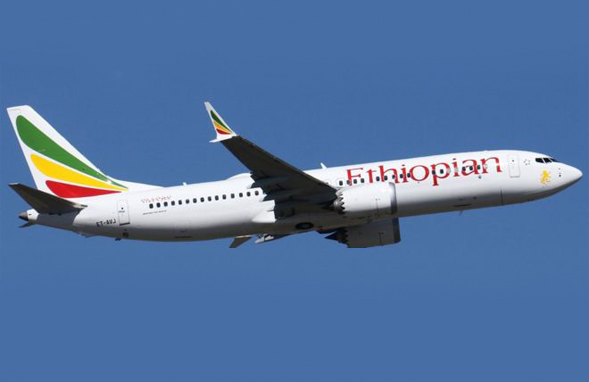
Six minutes after taking off from Ethiopian capital city of Addis Ababa, Ethiopian Airlines’ Boeing 737 Max 8 jet crashed on Sunday, killing all aboard. This is the second crash, involving the aircraft model in less than six months. Amid growing security concerns, India and New Zealand have joined the list of nations that have suspended 737 Max 8 jets, flying in and out of their airport
On Sunday, Ethiopian Airlines’ Boeing 737 Max-8 aircraft crashed near the town of Bishoftu, six minutes after taking off from Addis Ababa. The flight was headed to Nairobi and the crash led to over 150 fatalities. The mishap marked a second crash of the Boeing 737 in less than six months. Following the lead of Australia, Indonesia, China, and Singapore, India and New Zealand have confirmed the suspension of all flights of the US-manufactured aircraft on Wednesday. Malaysia and Fiji have also imposed temporary bans on the Boeing aircraft model.
The Indian Ministry of Civil Aviation announced on Wednesday, “No B737 Max aircraft will be allowed to enter or transit Indian airspace effective 1600 hrs IST or 1030 UTC. The timeline is to cater to situations where aircraft can be positioned at maintenance facilities & international flights can reach their destinations (sic)”. The announcement in India has affected SpiceJet and Jet Airway, the country’s only two airlines using the Boeing model. The cancellation of multiple flights by the airlines is likely to result in increased domestic fares. The Indian Aviation Ministry has called for an emergency meeting today at 4 pm (IST) to “prepare a contingency plan.”
New Zealand also expressed similar safety concerns, highlighting the “level of uncertainty” attached with Boeing 737, after the Ethiopian airline crash.
In the midst of a rapidly increasing number of boycotts of the US-based aircraft manufacturing firm’s 737 Max 8 jets, on Tuesday, the United States’ Federal Aviation Administration’s Acting Administrator, Daniel K Elwell asserted that the body was looking into the matter and “continues to review extensively all available data and aggregate safety performance from operators and pilots of the Boeing 737 Max.” He added, “Thus far, our review shows no systematic performance issues and provides no basis to order grounding the aircraft. Nor have other civil aviation authorities provided data to us that would warrant action.” On the same day, US President Donald Trump said the Boeing 737 Max 8 planes were “becoming far too complex to fly.”
In Singapore, the suspension of the Boeing planes on Tuesday has affected multiple airlines, including China Southern Airlines, Garuda Indonesia, Shandong Airlines, Thai Lion Air, and the state-owned Singapore Airlines’ SilkAir. In Australia, the decision affected Singapore’s SilkAir and Fiji Airlines. Norwegian Air, on the other hand, expects compensation from Boeing. In Europe, the EU’s Aviation Safety Agency (EASA) has suspended all Max 8 flights, following the initial boycott by European nations like Germany, Ireland, France and the UK.
Asserting the importance of safety, the British Aviation Authority explained the precautionary move – “As we do not currently have sufficient information from the flight data recorder we have, as a precautionary measure, issued instructions to stop any commercial passenger flights from any operator arriving, departing or overflying UK airspace.”
Amid increasing international pressure to re-evaluate the safeness of the 737 planes, Boeing has issued a statement saying the company has “full confidence” in the relatively new aircraft model. The aircraft manufacturing firm added, “We understand that regulatory agencies and customers have made decisions that they believe are most appropriate for their home markets. We’ll continue to engage with them to ensure they have the information needed to have confidence in operating their fleets.”
Last year, two United States’ pilots had filed voluntary safety reports regarding the 737 planes, which were added to a NASA-compiled database. The reports indicated the possibility of a technical flaw as both pilots argued that the automated system caused the plane to tilt downwards. The pilots asserted that the 737 moved downward in a sudden manner when put on autopilot.
In October, Indonesia’s Lion Air witnessed a crash similar to the Ethiopian Airline crash, killing all 189 on-board passengers. A common link between the crashes is yet to be discovered, however, in both cases the pilots reported technical difficulty with the plane and requested permission for an emergency landing.








